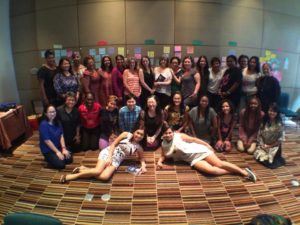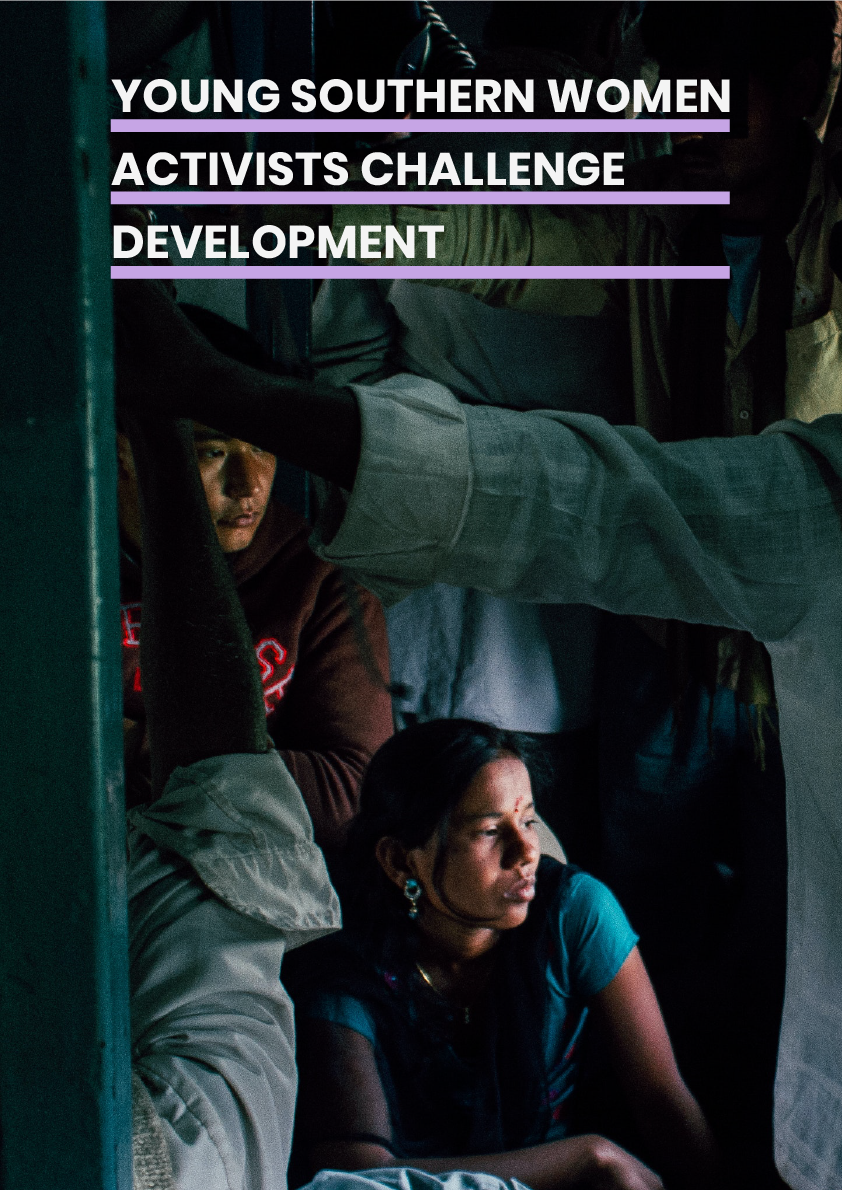4 November, 2014
For Immediate Release

NEWS RELEASE
Young Southern Women Activists Challenge Development
Twenty young women activists from Africa, Asia, Latin America, the Caribbean and the Pacific exchanged feminist analysis and strategies and identified linkages around gender, economic and ecological justice issues at an inter-regional consultation held in Manila, Philippines from 29-31 October, 2014.
The Inter-regional Gender, Economic and Ecological Justice (GEEJ) consultation, organised by global feminist network Development Alternatives with Women for a New Era (DAWN) is the first interregional dialogue following a series of regional activities held from 2010 to 2013 in Africa, Latin America, the Caribbean, the Pacific and Asia.
The three-day consultation provided a space for active engagement through creative and honest conversations on how to overcome what DAWN calls the “development silos”. In this regard, the consultation also discussed ways to strengthen, enhance and build transformative development alternatives through an inter-linkage analysis.
It also strengthened the capacity of participants in policy analysis and advocacy around current development debates and negotiations, including sustainable development goals (SDG), the Post 2015 development agenda, the 20 year review of the International Conference on Population and Development (ICPD beyond 2014), the 20 year review of the 4th World Conference on Women (Beijing+20) and the Third International Conference on Financing for Development (FfD). The consultation also enabled participants to develop national and regional strategies to strongly and collectively challenge the global development agenda.
DAWN executive member Nicole Bidegain said: “Participants challenged the dominant narratives that link extractive development patterns and poverty reduction; promote the involvement of the private sector as the driver for financing sustainable development and that instrumentalise women as a means for economic growth. They discussed the need to shift from the financialised global economy towards productive economies based on the principles of redistribution and sustainability, and specifically to overcome sexism and racism that are not only reinforced by mainstream theories and policies but also in alternative thinking and practices.”
Sharing her experience, a participant from India said: “It was great to meet a web of people working for gender, economic and ecological and justice. It was a great motivator!”
“For me, human rights means to be treated equally, with respect for my sexuality. This workshop has made me brave enough to go back to my region and advocate,” a member of the LGBT community from the Pacific Islands said.
Another Pacific participant said: “I work with local communities. I would like to take back what I have learned and try to translate it to people in Pacific communities in a language that they can understand.”
“It was a safe space which allowed for learning and interaction. It was brilliant to be able to discuss issues such as human rights and food sovereignty,” an African activist observed.
“It was an important space and it is necessary to continue debate everyday. Get out of your comfort zone. See what’s happening. Fight for what’s right,” urged a participant from Latin America.
At the end of the consultation participants have called on governments, civil society, social movements, and especially feminists, to support demands for the radical transformation of the existing development model that prioritises profit over human need and redistributive justice. “The nature of the multiple and interlinked crises confronting the Global South must be recognised. As feminists, we affirm that the intersections with inequalities along gender, class, race, age, ethnicity, caste, religion, sexual orientation and gender identity, ableism, among others, are crucial. Contributions from solidarity economies and self-management of cooperatives, by women especially, reclamation of agroecological practices and traditional knowledge, are few of the alternatives being developed by women from the Global South,” they said

